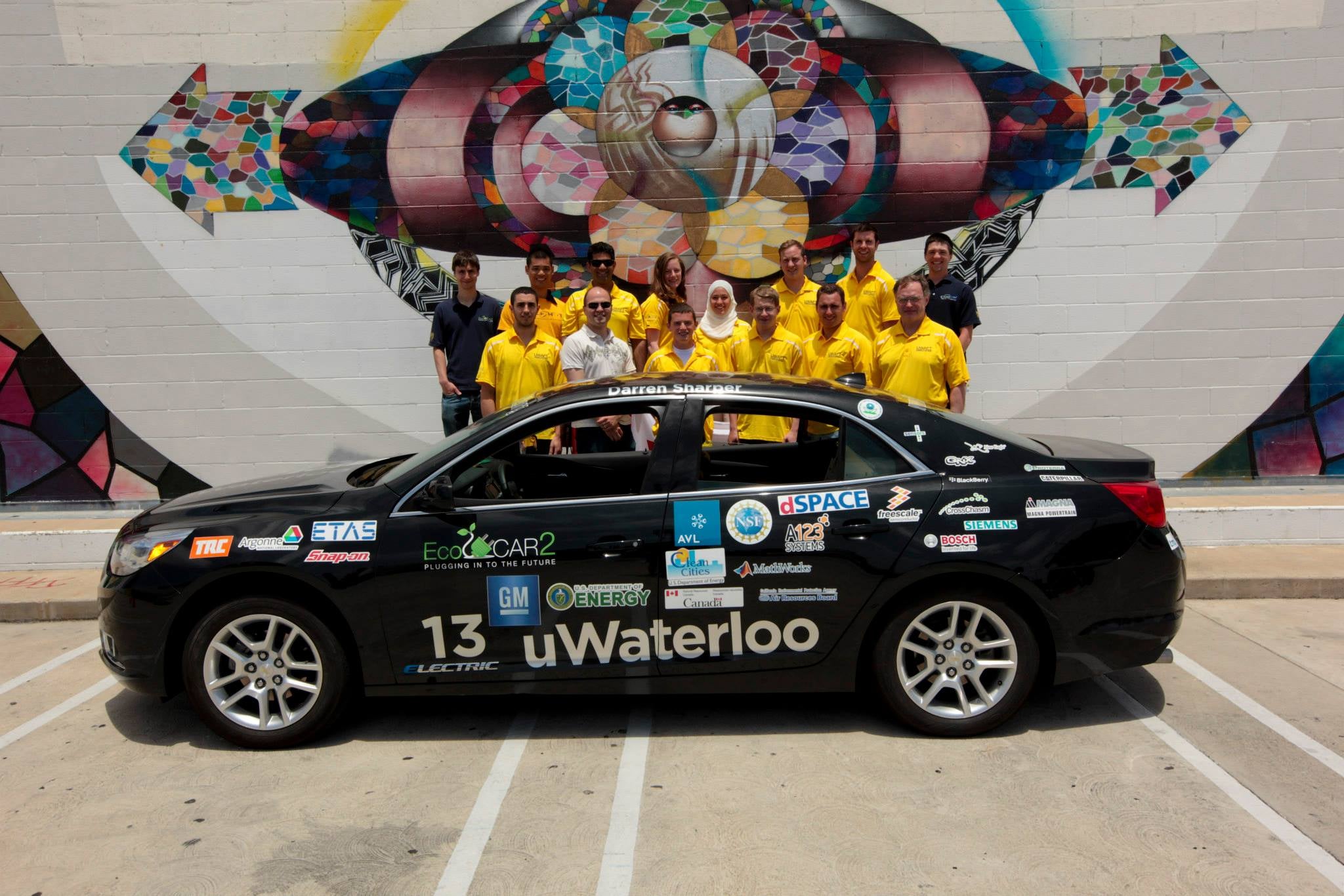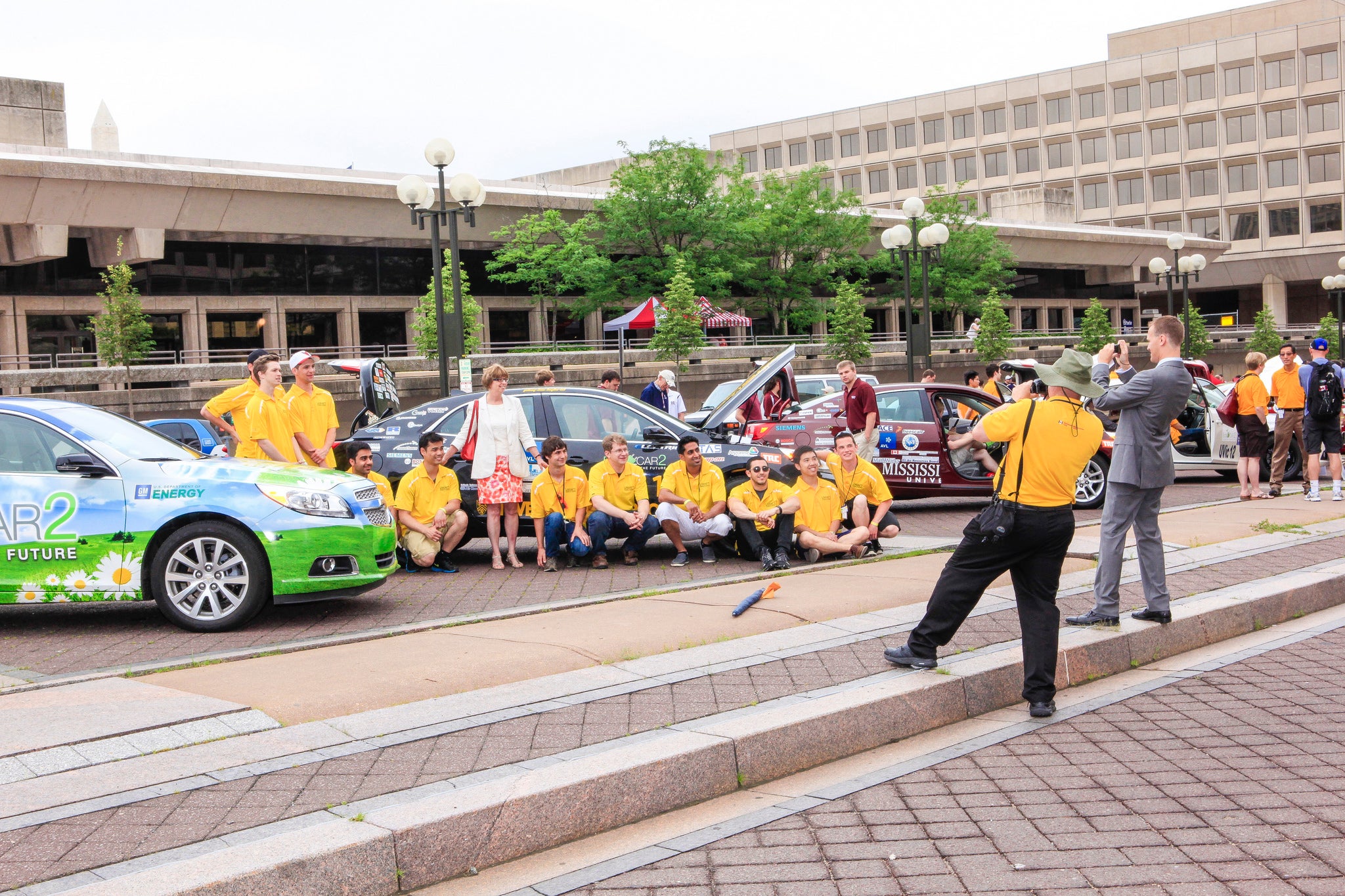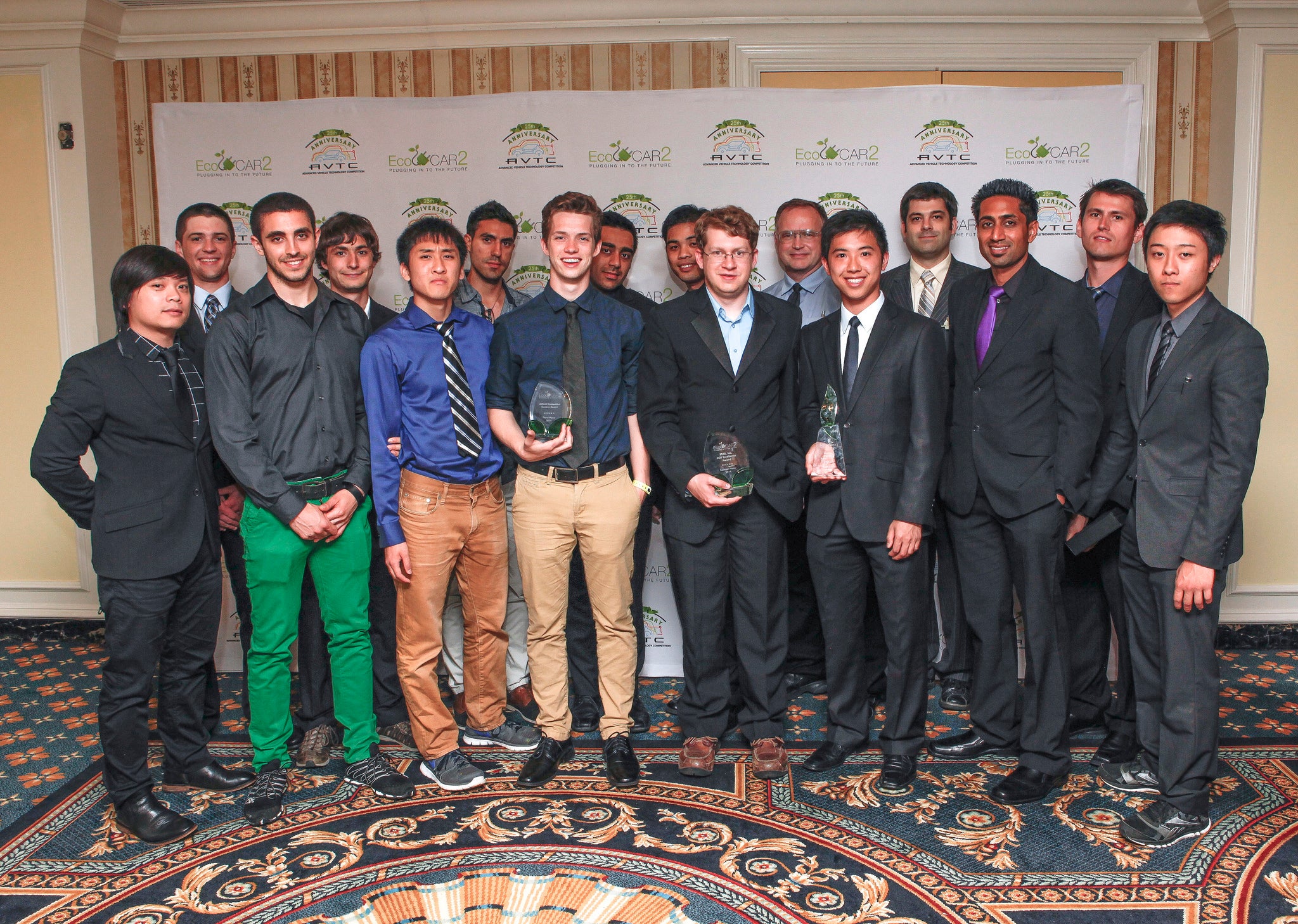
A team of University of Waterloo student researchers has been selected as one of 16 North American teams in the EcoCAR 3 Advanced Vehicle Technologies Competition launched April 24 by the U.S. Department of Energy and General Motors.
Waterloo’s EcoCAR 3 team will spend the next four years converting a donated Chevrolet Camaro into a Plug-In Hybrid Electric Vehicle that can deliver optimal performance to Canadian drivers in cold weather road conditions. New research in battery thermal modeling will be incorporated in the vehicle design.
Ben Gaffney and Patrick Ellsworth are two of the project team leads, as members of the University of Waterloo Alternative Fuels Team (UWAFT). “It’s a very elite opportunity,” said Gaffney. “The top researchers and engineers are recruited almost exclusively from this competition.”
UWAFT’s EcoCAR 3 vehicle will be re-engineered to reduce energy consumption, tailpipe and greenhouse gas emissions and maintain consumer demand for performance, safety and utility. The Waterloo team will receive funding support of over $1 million from General Motors Canada and the Natural Sciences and Engineering Research Council of Canada (NSERC).
Uniquely Canadian Plug-In Electric Vehicle
The project will study the impact of Canadian driving habits and weather on powertrain design and fuel consumption using data supplied by Waterloo-based CrossChasm Technologies. Significant additional sponsorship funding will be raised by the students.
Lithium-ion (Li-Ion) batteries are recognized as the leading contender for use in hybrid electric and plug in hybrid electric vehicles, addressing the challenge of extreme temperature as one of the most significant factors affecting the state of charge and state of health of a battery.
The research expertise of Waterloo Engineering professors Roydon Fraser and Michael Fowler will be a value-add in the Camaro’s design, with the EcoCAR representing an in-situ test bed for Fraser and Fowler’s lithium-ion battery research.
“The EcoCAR 3 vehicle is a natural extension of our past vehicle builds,” said Fraser, who has been awarded an Applied Automotive Engineering Fellowship by the U.S. Department of Energy. “Waterloo students receive unparalleled exposure to cutting edge, hybrid electric vehicle technologies, learning and using the same tools that they will utilize in their future careers in industry.”

EcoCar2 team posting outside the U.S. Department of Energy with Canadian Embassy representative
The Camaro will be redesigned and built in the 20,000-square-foot Sedra Student Design Centre with access to over 125 University of Waterloo professors actively involved in automotive research through Waterloo’s Centre for Automotive Research (WatCAR), the largest hub for university-based automotive research and development in Canada.
"We have gained significant talent and intellectual property as a result of these programs," said James Kolhoff, global chief engineer and program manager, transmission controllers and powertrain electronics at General Motors. "We’re also eager to see how the students will redesign and add more efficiency to an iconic ‘muscle car’ like the Chevrolet Camaro."
“The EcoCAR 3 represents an important piece of technology transfer,” said Pearl Sullivan, Dean of Engineering. “It will advantage over $60 million in accumulated automotive research infrastructure in Waterloo. The age of the hybrid vehicle is here.”

University of Waterloo team at the EcoCar2 Year Three Awards Ceremony
About EcoCAR 3
EcoCAR 3 is a four-year collegiate engineering program that builds on the successful 26-year history of Department of Energy advanced vehicle technology competitions by giving engineering students the chance to design and build advanced vehicles that demonstrate leading-edge, eco-friendly automotive technologies.
General Motors provides each of the 16 competing teams with a Chevrolet Camaro, as well as vehicle components, seed money, technical mentoring and operational support. The U.S. Department of Energy and its research and development facility, Argonne National Laboratory, provide competition management, team evaluation and logistical support. Through this important public/private partnership, EcoCAR 3 provides invaluable experience and training to promising young minds entering the North American job market. EcoCAR 3 follows the widely acclaimed competition series EcoCAR 2: Plugging In to the Future.